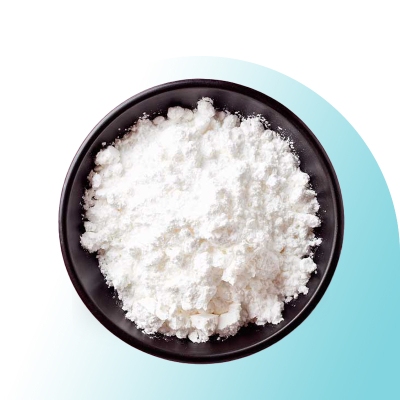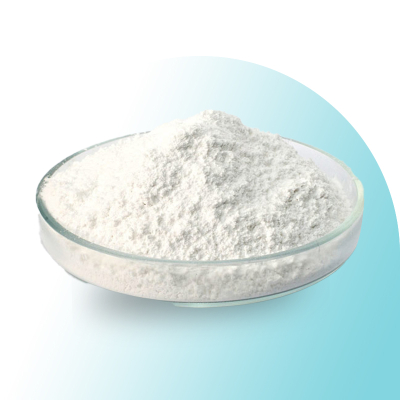What is resistant dextrin?
Resistant dextrin is becoming increasingly popular as a functional ingredient in various food products. This soluble dietary fiber is known for its unique health benefits and versatile applications. Understanding what resistant dextrin is and its significance can help consumers make informed dietary choices. In this article, we will look at resistant maltodextrin, non-digestible dextrin, organic resistant tapioca dextrin, and NON-GMO resistant dextrin.
Understanding Resistant Dextrin
Resistant dextrin is a type of soluble fiber that the body does not completely digest. It is obtained from starch through a process called hydrolysis. Unlike regular carbohydrates, resistant dextrin passes through the digestive system without causing a significant increase in blood sugar levels. This quality makes it a valuable ingredient for those who control their weight and blood glucose levels.
What is resistant maltodextrin?
Resistant maltodextrinis a specific type of resistant dextrin. It is created from starch through a controlled hydrolysis process. This process converts starch into soluble fiber, which resists digestion. Resistant maltodextrin retains the beneficial properties of dietary fiber and offers a smooth texture. This ingredient can be easily added to a variety of food products, including drinks, sauces and snacks.
Indigestible dextrin: a key component
Indigestible dextrinis another term associated with resistant dextrin. This type of fiber provides similar benefits, primarily supporting digestive health. It acts as a prebiotic, stimulating the growth of beneficial bacteria in the intestines. By including non-digestible dextrin in your diet, you can support your digestive system and improve overall gut health. Many health-conscious consumers seek out products containing this fiber due to its many benefits.
Organic Resistant Tapioca Dextrin
For those looking for natural options,organic resistant tapioca dextrin- an excellent choice. This ingredient is derived from tapioca starch, which is extracted from cassava roots. Organic resistant tapioca dextrin offers the same benefits as traditional resistant dextrin. It contains no artificial additives and is non-GMO. Incorporating organic resistant tapioca dextrin into your diet can increase your fiber intake without sacrificing quality.
Benefits of NON-GMO resistant dextrin
In today's health-oriented market, many consumers preferNON-GMO resistant dextrin. This product is made from non-genetically modified sources to ensure its purity and quality. Non-GMO Resistant Dextrin provides the same benefits as regular Resistant Dextrin, including improved digestive health and stable blood sugar levels. When selecting food ingredients, choosing non-GMO options can contribute to a healthier lifestyle.
Beneficial properties of resistant dextrin
Including resistant dextrin in your diet may offer several benefits:
1.Weight management:Resistant dextrin enhances satiety, helping you stay full longer. This quality can help in weight loss and management.
2.Controlling blood sugar levels:As a low glycemic index ingredient, resistant dextrin does not cause spikes in blood sugar levels. This makes it an ideal choice for people with diabetes.
3.Digestive health:Resistant dextrin acts as a prebiotic, promoting the growth of beneficial bacteria in the intestines. This support can lead to improved digestion and gut health.
4.Cholesterol management:Some research suggests that soluble fibers, such as resistant dextrin, may help lower cholesterol levels. This effect may promote overall heart health.
How to Include Resistant Dextrin in Your Diet
Adding resistant dextrin to your meals is simple and convenient. Here are some recommendations:
1.Smoothie:Mix resistant dextrin into your morning smoothie for an extra fiber boost.
2.Bakery:Replace some of the flour in your baking recipes with resistant maltodextrin for increased fiber content.
3.Soups and sauces:Add resistant dextrin to soups or sauces to improve texture and nutritional value.
4.Snack bars:Look for snack bars containing organic resistant tapioca dextrin for a healthy on-the-go option.
Choosing the Right Product
When choosing a resistant dextrin product, consider the following factors:
·Source:Choose foods made from high-quality, organic or non-GMO sources.
·Labels:Read food labels to make sure they meet your dietary preferences.
·Target:Determine your specific health goals to choose the most appropriate form of resistant dextrin.
Conclusion
In conclusion, resistant dextrin is a valuable ingredient that offers many beneficial properties. Understanding the different forms, such as resistant maltodextrin, non-digestible dextrin, organic resistant tapioca dextrin and NON-GMO resistant dextrin, allows consumers to make informed dietary choices. By including resistant dextrin in your meals, you can increase your fiber intake and support overall health. As always, consult a healthcare professional before making significant changes to your diet.



